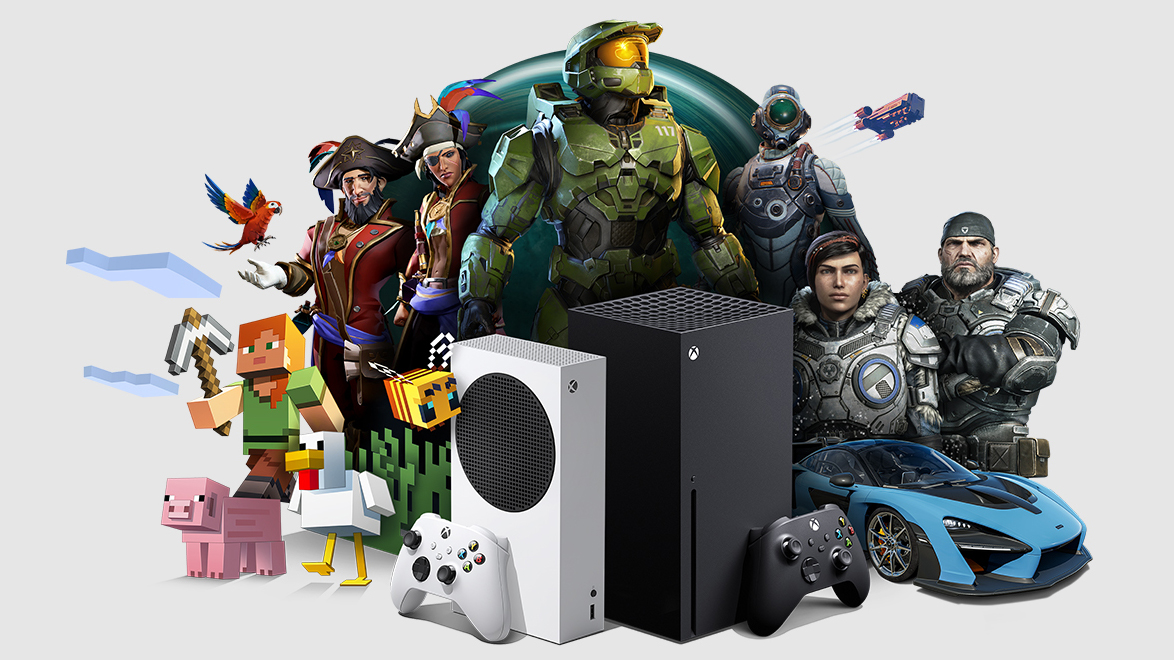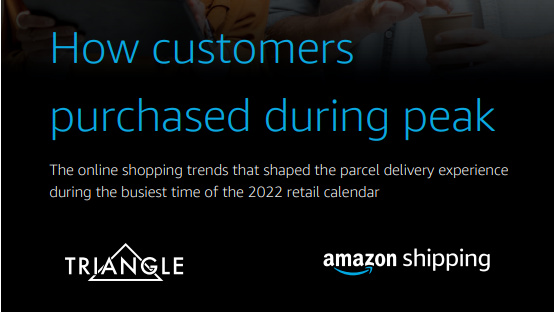The Xbox Series X shows how far the cloud still has to go
All the pre-order palaver makes us wonder: Just how elastic is the cloud, anyway?


Sign up today and you will receive a free copy of our Future Focus 2025 report - the leading guidance on AI, cybersecurity and other IT challenges as per 700+ senior executives
You are now subscribed
Your newsletter sign-up was successful
Watching the mad scramble to secure an Xbox Series X this week has been grimly amusing. As is normally the case whenever a new big-ticket gaming item comes out, there was a frantic dash to pre-order the new console in order to guarantee a day-one delivery and – as usual – the process was a complete mess.
Predictably, the demand massively outstripped available supply and retailers quickly ran out of stock, but that process wasn’t helped by a truly staggering amount of technical failures. Customers on both sides of the Atlantic were forced to suffer long load times when trying to access store pages, only to be greeted with error messages.
Sony suffered similar problems with the PlayStation 5’s launch; part of the problem was low stock levels and a lack of coordination around when pre-orders were going live, but many attempted purchases were stymied by technical errors, failed payments and other wobbles.
Naturally, this wasn’t a problem for me; as a newly-minted PC gamer, I merely sat on my watercooled throne of RTX 2080’s and observed the carnage with amused disinterest. It did, however, get me thinking about just how infinitely scalable the cloud actually is.
One thing I found particularly interesting is that many users reported multiple problems when trying to purchase the new Xbox through both Amazon and Microsoft’s storefronts. It’s perhaps understandable that smaller retailers like Argos and Very might have problems in the face of an overwhelming surge of app and website traffic, but Amazon and Microsoft are the proprietors of the world’s two biggest public cloud infrastructures.
One of the key selling-points of the cloud – or so we’re told – is that it’s an ‘elastic’ infrastructure, meaning that when site traffic surges, the system can scale up its capacity to accommodate it rather than simply falling over as traditional on-premise infrastructure would. And yet, when traffic to their platforms spiked, neither Microsoft nor Amazon seemed able to cope without issue.
Now, of course, I understand why this happened: The latest Xbox is one of the most compelling consoles Microsoft has released in years, and demand for pre-orders was no doubt especially high. On top of that, computer science is, in many ways, more art than science – if cloud computing wasn’t so tricky to get right, Microsoft wouldn’t have been able to earn $12.5 billion from doing so in its latest financial quarter.
Sign up today and you will receive a free copy of our Future Focus 2025 report - the leading guidance on AI, cybersecurity and other IT challenges as per 700+ senior executives
RELATED RESOURCE

Cloud is an operating model, not a destination
How to transform hybrid cloud operations to support digital transformation
However, it must be said that when not even the two titans of the cloud computing space can handle the traffic for a scheduled and anticipated launch event –which was for one of Microsoft’s own flagship products, to boot – it doesn’t inspire the greatest confidence in AWS or Azure’s ability to weather the unexpected spikes in the way its customers likely expect.
Both cloud platforms are still technical marvels on the cutting edge of enterprise computing, and one wobbly launch does not a faulty platform make. Still though, it’s a useful reminder that for all the cloud industry’s bluster about ‘maximum uptime’ and ‘infinite scalability’, there’s no such thing as an infallible system, and even the biggest platforms aren’t immune to the occasional upset.
Adam Shepherd has been a technology journalist since 2015, covering everything from cloud storage and security, to smartphones and servers. Over the course of his career, he’s seen the spread of 5G, the growing ubiquity of wireless devices, and the start of the connected revolution. He’s also been to more trade shows and technology conferences than he cares to count.
Adam is an avid follower of the latest hardware innovations, and he is never happier than when tinkering with complex network configurations, or exploring a new Linux distro. He was also previously a co-host on the ITPro Podcast, where he was often found ranting about his love of strange gadgets, his disdain for Windows Mobile, and everything in between.
You can find Adam tweeting about enterprise technology (or more often bad jokes) @AdamShepherUK.
-
 Pulsant unveils high-density data center in Milton Keynes
Pulsant unveils high-density data center in Milton KeynesNews The company is touting ultra-low latency, international connectivity, and UK sovereign compute power to tempt customers out of London
-
 Anthropic Labs chief claims 'Claude is now writing Claude'
Anthropic Labs chief claims 'Claude is now writing Claude'News Internal teams at Anthropic are supercharging production and shoring up code security with Claude, claims executive
-
 How IBM and Adobe craft personalization at scale
How IBM and Adobe craft personalization at scaleWhitepaper Combining the content supply chain, CX orchestration, and intelligent commerce for ideal personalization
-
 Preparing for peak: How customers purchased during peak
Preparing for peak: How customers purchased during peakwhitepaper The online shopping trends that shaped the parcel delivery experience during the busiest time of the 2022 calendar
-
 The Total Economic Impact™ of IBM iX digital commerce services
The Total Economic Impact™ of IBM iX digital commerce servicesWhitepaper Delivering strategic growth with experience-led commerce solutions
-
 US antitrust bill nearing law faces fierce tech opposition
US antitrust bill nearing law faces fierce tech oppositionNews AICO seeks to limit the extent to which tech platforms can self-promote, and has drawn tens of millions of dollars in opposition from some of the largest tech firms
-
 Square offers sellers buy now, pay later integration with Clearpay
Square offers sellers buy now, pay later integration with ClearpayNews For the first time, Square customers in-person and online will be given the option to make a purchase as interest-free payments
-
 Sharp expands IT services with new FundOnion partnership
Sharp expands IT services with new FundOnion partnershipNews Collaboration will see the business finance platform now offer Sharp’s range of B2B solutions
-
 Apple hit with class action suit for stifling rival tap-to-pay options
Apple hit with class action suit for stifling rival tap-to-pay optionsNews The devil is in the details of Apple’s policies, states Hagens Berman’s spokesperson
-
 Amazon's use of third-party seller data to be investigated by CMA
Amazon's use of third-party seller data to be investigated by CMANews The investigation follows an almost identical one currently being carried out by the European Commission after the company was previously charged over similar practices by the European authority in 2020
